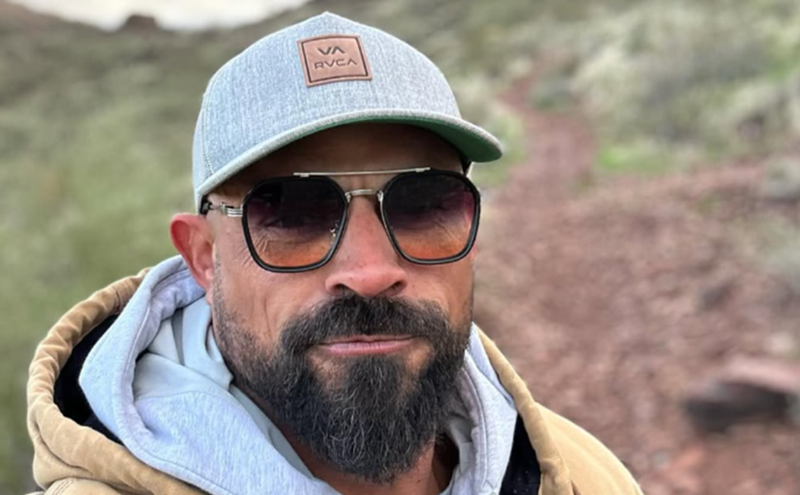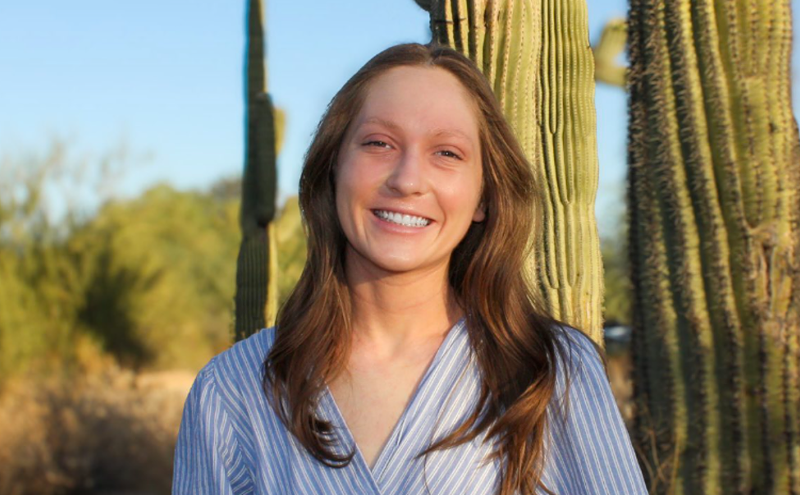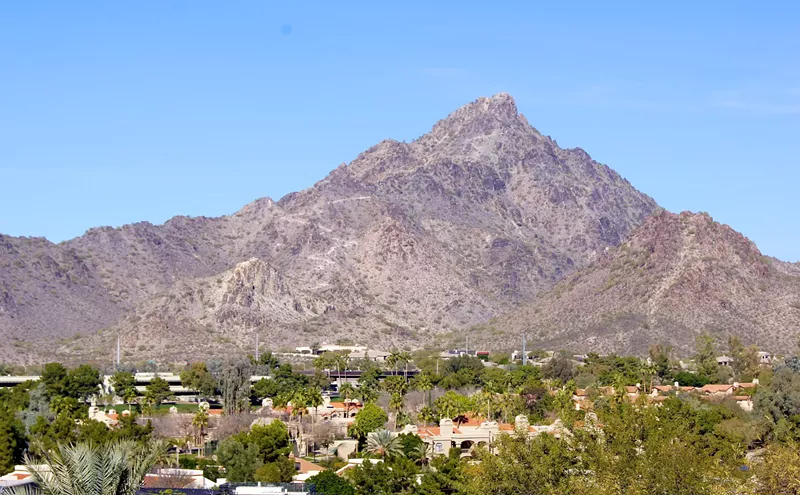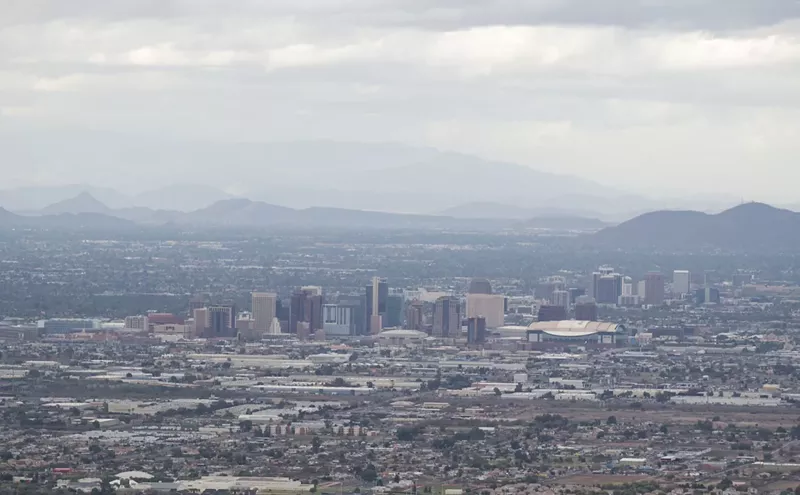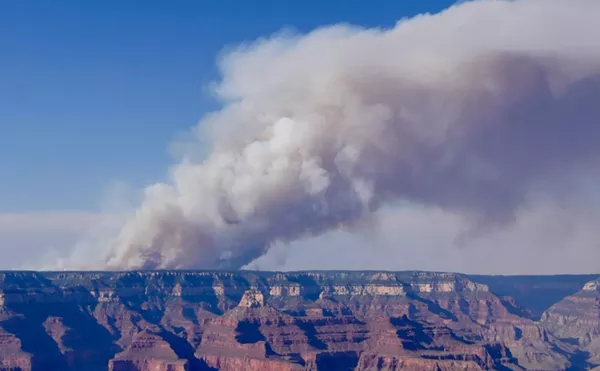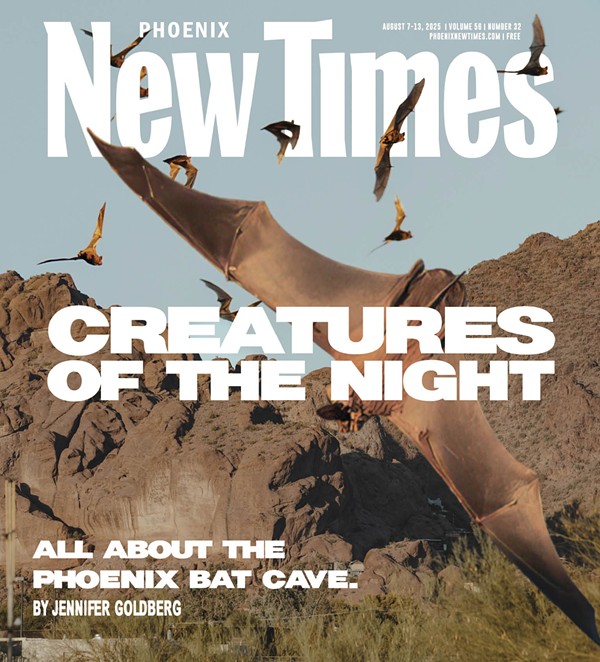Recent events necessitate a review of the bleak, chilling years not long past, when Maricopa County Sheriff Joe Arpaio and his political ally, ex-County Attorney Andrew Thomas, attempted to rule the Valley like a Third World junta.
As my colleague Ray Stern first reported online, the Ninth U.S. Circuit Court of Appeals finally ruled in Lacey v. Arpaio, the lawsuit brought by Village Voice Media Executive Editor Michael Lacey and VVM CEO Jim Larkin against Maricopa County, Arpaio, Thomas, Thomas' former special prosecutor, Dennis Wilenchik, and others for the false arrests of New Times' co-founders in 2007.
The 2-1 decision by a three-judge panel was a mixed bag, upholding parts of the lower court's ruling dismissing the case and reversing other parts. The details are complex, but Lacey and Larkin have announced that they will appeal the Ninth Circuit's ruling, seeking redress from a larger panel of the federal appellate court's pool of judges.
"It's not necessarily common," Lacey said of the request for what's referred to as an en banc review. "But it does happen when there's a split [decision], and when there are important issues involved. And we think freedom of the press and the intimidation of the press are important issues."
Lacey and his longtime partner were collared shortly after their October 18, 2007, cover story, "Breathtaking Abuse of the Constitution." The article revealed secret subpoenas from Wilenchik seeking confidential information on visitors to New Times' website, as well as all material related to certain articles critical of the Arpaio-Thomas-Wilenchik axis.
These subpoenas were illegal. No grand jury had been impaneled, and Wilenchik had no authority to issue subpoenas without one.
The story of two newspapermen rounded up in the middle of the night by plainclothes thugs in unmarked cars bearing Mexican plates hit the local and national press like an A-bomb. The resulting conflagration of criticism forced Thomas to drop the entire matter less than 24 hours after Lacey and Larkin had been taken in and booked.
But that was just the beginning of the legal battle.
In 2008, New Times filed a notice of claim with Maricopa County, announcing its intent to sue, asking for $15 million in damages for the unprecedented harassment and malicious prosecution of two members of America's Fourth Estate.
Lawsuits later were filed in state and federal courts that ultimately were heard by District Court Judge Susan R. Bolton, who's now famous for enjoining most of Arizona's breathing-while-brown law, Senate Bill 1070.
Despite the complaint's damning facts, which show that Arpaio, Wilenchik, and Thomas violated the plaintiffs' rights under the U.S. Constitution's First, Fourth, and 14th amendments, Bolton tossed the suit from federal court.
The plaintiffs appealed to the Ninth Circuit, and a panel of three judges responded with the aforementioned ruling.
The 2-1 decision upheld part of Bolton's ruling, finding that Thomas, in his role as prosecutor, enjoyed absolute immunity. This is not surprising, because prosecutorial immunity has been well established by the courts as means of ensuring that prosecutors can freely pursue their duties without worry of civil liability.
Not that Thomas is blameless. Far from it. He appointed his former employer, Wilenchik, a private attorney whose expertise is in mold litigation, to go after New Times for supposedly violating an obscure, never-before-enforced state law preventing Internet publication of the home addresses of law enforcement officers and judges.
The home address at issue was Arpaio's, which appeared in a 2004 column by a former New Times writer. Columnist John Dougherty had been investigating commercial land acquisitions by Arpaio and questioned the propriety of having information about the parcels redacted from public view. Arpaio claimed the redactions were there to preserve the confidentiality of his home address.
Problem was, Arpaio's home address was available online through various sources, including the Maricopa County Recorder's Office and the website for the local Republican Party. Oddly, the law does not prevent a peace officer's address from being published in print, only online.
Following Thomas' election in 2004, Arpaio pressed him to seek charges against New Times' reporters, editors, and publishers.
Thomas had a conflict of interest because New Times had been highly critical of him from jump, so he sent the case to the Pinal County Attorney's Office. But the PCAO declined to press charges and returned the case to Thomas.
Ever obedient to Arpaio's demand for retaliation, Thomas tapped Wilenchik as his special prosecutor in the New Times matter. Thomas proceeded even after his own staff had advised him not to seek criminal charges in the matter.
Wilenchik already was working for Thomas and Arpaio on a number of cases and had earned a reputation as a pugnacious attorney with little countenance for legal niceties.
Without ever appearing before an actual grand jury or notifying presiding Superior Court Judge Anna Baca, Wilenchik issued broad, intrusive subpoenas to New Times. The newspaper sought to have Baca quash the subpoenas. Then while the motion to quash was pending, Wilenchik — through a well-placed intermediary — sought ex parte (private) communication with Baca in an attempt to influence her. Baca called the parties into court and blasted Wilenchik's move as "absolutely inappropriate."
This left Lacey and Larkin with a tough decision, one they summed up in the 2007 article that spurred their arrests.
"In our humble opinion," they wrote, "Wilenchik's clumsy intervention behind the scenes with the judge was well beyond 'inappropriate.' Wilenchik's behavior raised the issue of an attempt to rig a grand jury already veiled in official secrecy.
"In our deliberations, we faced the obvious: A grand jury investigation is a fearsome thing; a tainted grand jury is a tipping point."
Violating grand jury secrecy is a misdemeanor. The law primarily exists to protect those under investigation, not to create a star-chamber accountable to no one.
But as we all later learned, there was no grand jury.
And yet Wilenchik sought warrants, and Arpaio's Selective Enforcement Unit — used primarily to go after his political enemies — was ordered to arrest the execs under the cover of darkness.
Lacey was arrested in front of his girlfriend. Larkin before his wife, who was threatened with arrest by SEU members for arguing with them. This, as the Larkins' children slept in another part of their home.
The Larkins had spent that evening celebrating their 15th wedding anniversary. But Larkin ended up spending much of the night in the custody of MCSO goons, who lectured him on the sanctity of grand jury proceedings, despite the absence of any actual grand jury in the case.
"I just sat there and took it," said Larkin at the time. "I didn't want to argue with [them]. I think the First Amendment trumps grand jury secrecy."
While Larkin was being harangued, Lacey was getting thrown into Sheriff Joe's Fourth Avenue Jail, only to be released early the next morning.
A scrum of reporters met him. Lacey referred to his arrest as "Mr. Toad's Wild Ride," the dark, chaotic Disneyland attraction.
"One guy said, 'What are you in for, DUI?" Lacey recalled of a cellmate. "I said, 'Nah, I'm in here for writing.'"
He reminded fellow journalists that the story was about Wilenchik's illegal subpoenas, which sought the "the identity, the browsing habits, the buying habits" of New Times' readers.
"The fact that they have subpoenaed that kind of information . . . is what the story's about," he told them. "It's not about me getting out of jail at four in the morning."
And there are still much larger issues involved.
The Ninth Circuit's majority opinion left Wilenchik on the hook for violations of the Fourth and First amendments to the U.S. Constitution.
Thomas, as mentioned, scored absolute immunity. But as he's currently looking down the barrel of disbarment this fall — when a disciplinary panel of the State Bar of Arizona will review his numerous ethical and allegedly illegal practices — he's hardly escaping unscathed.
But what about Arpaio?
The majority found that the sheriff had qualified immunity from civil liability, insisting in its ruling that certain facts were in dispute as to who ordered the arrests.
True, Arpaio's fired and highly indictable former chief deputy, David Hendershott, once asserted, in what probably was an attempt to block a path to his boss, that he ordered the late-night arrests.
"Hendershott has fallen on his sword so many times for Arpaio that you have to feel sorry for the sword," said Lacey while discussing the Ninth Circuit's decision. "I think the tale is far from told, as far as levels of responsibility here."
As far as who ordered what and when, Lacey said, these issues rightly should be taken up during depositions and other discovery.
The most conservative member of the Ninth Circuit's three-judge panel likely was Judge Jay Bybee, whose name is synonymous with the so-called "torture memos" written during President George W. Bush's administration, the ones that allowed water-boarding to be used on detainees at Guantanamo Bay.
Bybee signed the protocols as an assistant U.S. attorney general. Still, as a judge, Bybee shows sympathy for the underdog in the New Times case. He dissented from the majority and blasted Arpaio's involvement in the Lacey-Larkin arrests, which he labeled a "sordid tale of public abuse of office."
The conservative jurist agreed with the majority on Thomas' immunity, but he stated he would prefer seeing the action against Arpaio proceed. This alone gives New Times hope of prevailing with the larger en banc panel.
There also was bad news for Arpaio in the majority's opinion, which green-lights the corresponding lawsuit in the state courts and remands part of the case back to Bolton in federal court.
Though the two-judge majority agreed with Bolton's dismissal of New Times' claims against Arpaio, the judges' footnote to the statement mentioned that the plaintiffs could conceivably "develop sufficient facts" to file an amended claim before Bolton.
Which New Times plans to do.
It'll then be Bolton's call, but it bears observing that Arpaio's maniacal appetite for revenge was the driving force behind everything Thomas, Hendershott, and Wilenchik did.
As with Arpaio's vendettas — against the Maricopa County Board of Supervisors, Phoenix Mayor Phil Gordon, and other enemies — the sheriff's lust for retribution overpowered all other factors.
Indeed, all switchbacks lead to one man — the one with the stars on his collar.



